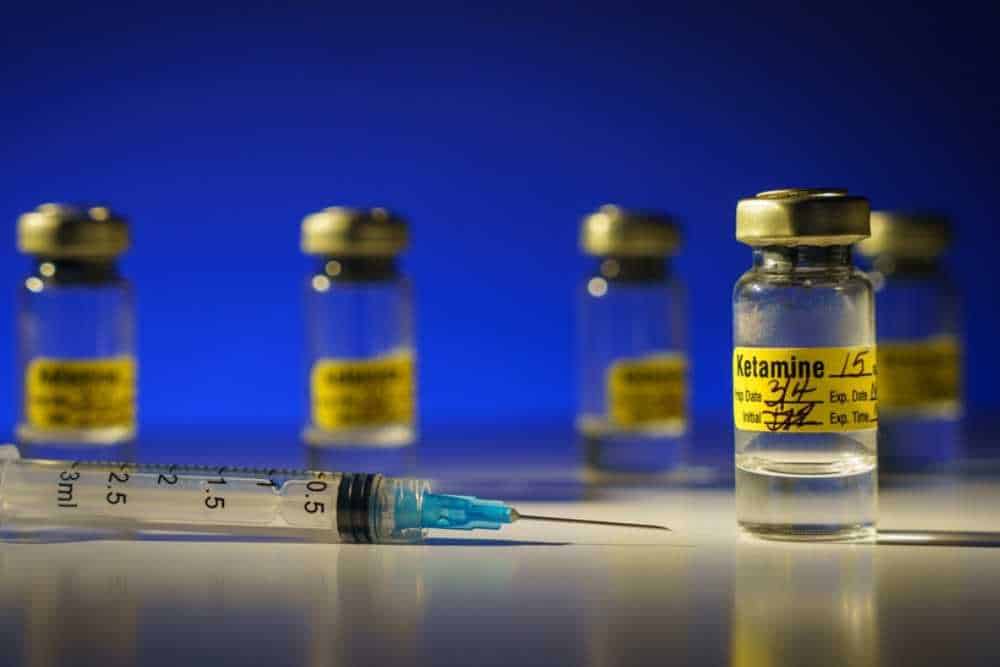We Accept Most PPO Insurance Policies
All calls and submitted forms are 100% confidential. Insurance could completely cover the cost of treatment




In recent years, studies have shown ketamine to be an effective treatment option for certain mental health conditions, though it comes with important considerations. Ketamine therapy Irvine residents can access, has shown promising results in treating severe depression.
After just three infusions of ketamine over 11 days, 52% of participants saw their severe depression ease so much they achieved remission, according to a University of Michigan study. Also, over 70% of patients see a significant reduction in negative symptoms with three infusions, with benefits potentially appearing within an hour and lasting up to 14 days.
Ketamine is typically administered under medical supervision through IV infusions or nasal spray. It requires careful monitoring during mental health treatment in California due to potential side effects and the risk of abuse. Due to the well-documented adverse effects, it’s essential to work with qualified medical professionals who can assess whether patients are good candidates and provide proper monitoring throughout the treatment process.

During a ketamine therapy session for depression and other conditions, patients can expect a carefully monitored experience that typically follows a structured process. A controlled dose of ketamine is administered intravenously, typically over 40 minutes to an hour. Some sessions may last longer, with the procedure typically lasting around 60 to 90 minutes, including preparation and monitoring time.
Patients commonly experience dissociative effects during the session. Mild shifts in perception and time are normal, but rest assured that these effects are temporary and part of the therapeutic process. Many patients describe the experience as an inward journey, with opportunities to explore their thoughts and emotions.
Throughout the session, the medical team will periodically check in with patients to ensure comfort and well-being and monitor vital signs closely to maintain safety. The effects of ketamine are felt within minutes of an intravenous infusion, peak at about 20 minutes, and last for about 40 minutes per our infusion protocol. The residual effects of ketamine last 1 to 3 hours after an infusion. Most patients find the experience manageable and report that knowing what to expect helps reduce anxiety about their first session.
The timeline for starting ketamine therapy can vary depending on the clinic and the specific situation. The process begins with an initial consultation, during which both the patient and mental health professional evaluate whether ketamine treatment is appropriate. If the patient and mental health professional agree to ketamine treatment, then a follow-up appointment is scheduled to start the treatment process.
Once approved for treatment, the typical schedule moves relatively quickly. Most patients begin with a series of six infusions over two to three weeks. Some clinics offer flexibility in scheduling, whereas some find it comforting to complete six infusions in two weeks to get the maximum benefit as quickly as possible. Others prefer to have more time between each infusion.
With the rapid expansion of ketamine clinics nationwide, appointment availability has generally improved. Many clinics aim to accommodate patients quickly, with some booking patients at the earliest possible time when patients call to schedule.
The speed at which you can begin treatment may depend on:
While many clinics can schedule consultations relatively quickly, proper screening and evaluation should not be rushed, as ketamine therapy requires careful assessment to ensure it’s appropriate and safe for each patient.

Ketamine therapy has shown significant effectiveness for depression, particularly for treatment-resistant cases, with clinical trials demonstrating substantial response rates and rapid onset of benefits. One study showed that after just three infusions of ketamine over 11 days, 52% of participants saw their severe depression ease so much that they achieved remission.
Ketamine is particularly valuable for patients who haven’t responded to other treatments. The FDA approved an inhaled version of it for treatment-resistant depression. However, it is generally prescribed only when other treatments are ineffective.
Studies suggest that repeated treatments may be more effective than single doses. The strategy of repeated ketamine in open-label and saline-control studies of treatment-resistant depression suggested greater antidepressant response beyond a single dose of ketamine.
Beyond depression, the treatment shows promise for related conditions, including ketamine for military PTSD. A study showed that after receiving six IV ketamine infusions, significant relief of PTSD symptoms was noted, with half of the veterans experiencing a meaningful drop in depression scores and one-third seeing their depression scores halved.


Ketamine-assisted psychotherapy shows several promising long-term benefits that distinguish it from ketamine treatment alone, particularly in its ability to provide sustained therapeutic gains through the integration of psychological support. Research suggests that the psychotherapeutic component helps patients integrate and make sense of their ketamine experiences, facilitating long-term therapeutic gains that might not occur with medication alone.
The altered state induced by ketamine may facilitate deeper therapeutic work. Studies from researchers indicate enhanced benefit from the presence of psychedelic experiences, with both medicines providing altered, often profound psychedelic experiences. This association suggests that profound psychedelic experiences, regardless of the medicine facilitating them, may improve mental health and overall well-being.
The psychotherapy component provides a framework for continued growth, with regular follow-up appointments allowing healthcare providers to monitor progress, adjust treatment as needed, and provide ongoing support. While more long-term research is needed, current evidence suggests that Ketamine-assisted psychotherapy’s integration of ketamine’s neuroplastic effects with psychotherapeutic processing may create more durable and comprehensive therapeutic benefits than either treatment modality alone.

Seeking ketamine therapy Irvine residents can access at a professional clinic provides essential safety measures and medical oversight that are crucial for effective treatment of mental health conditions. Professional clinics offer comprehensive medical screening to ensure patients are appropriate candidates for ketamine therapy, while providing continuous monitoring of vital signs during treatment sessions.
The structured treatment protocols and integrated care maximize ketamine therapy’s effectiveness for mental health conditions. Unlike unregulated settings, these clinics follow evidence-based treatment schedules typically involving a series of carefully timed sessions designed to build and maintain therapeutic benefits.
The clinical setting also ensures proper preparation and aftercare, including post-treatment monitoring and follow-up appointments to track progress and maintain gains. This comprehensive approach addresses immediate symptom relief and supports sustained mental health improvements through ongoing professional guidance and care coordination.
For help exploring ketamine therapy in Irvine, CA, for depression, anxiety, and PTSD, contact Moment of Clarity at 949-625-0564 today.